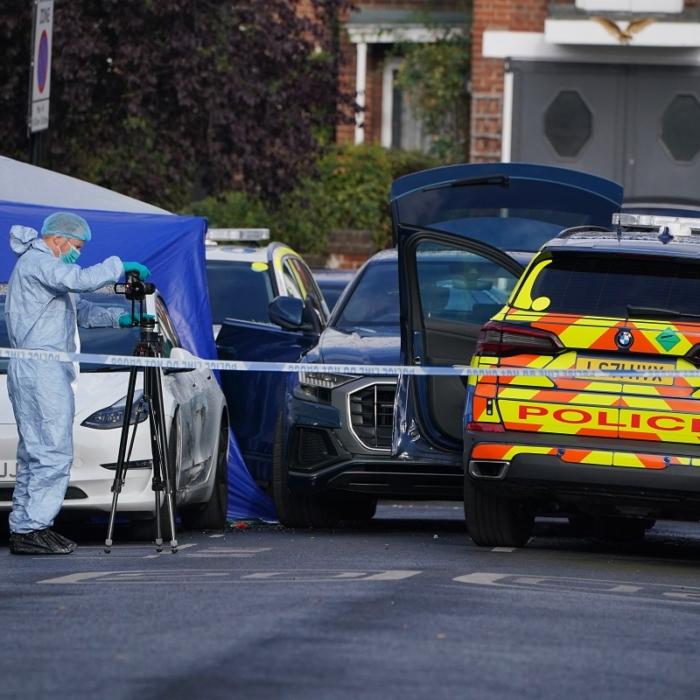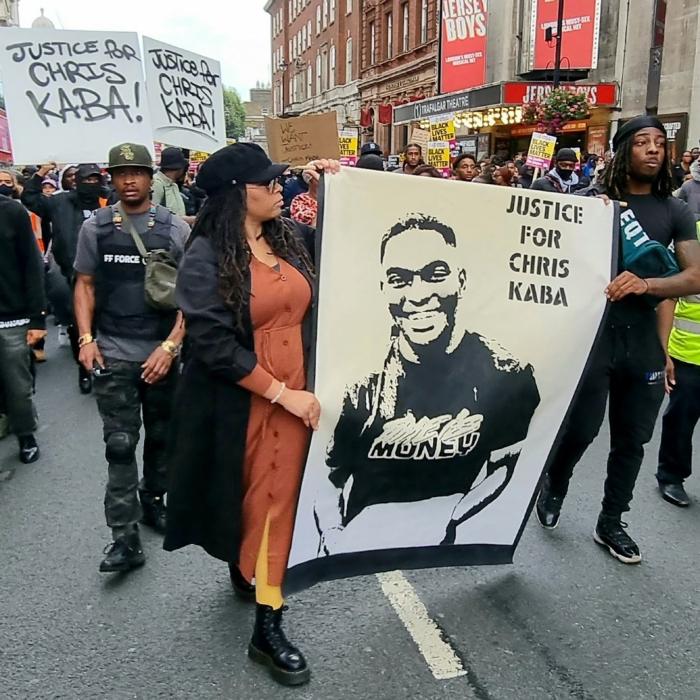Martyn Blake, 40, the Metropolitan Police firearms officer who shot Chris Kaba, 24, in September 2022, has been found not guilty of his murder.
The jury deliberated for three hours on Monday before delivering the verdict at the Old Bailey. Standing in the dock, Blake appeared to be briefly overcome with emotion when he heard he had been cleared.
In a statement issued by campaign group Inquest, Kaba’s family, who was present in court when the verdict was delivered, said that they are devastated and the not guilty verdict “leaves us with the deep pain of injustice adding to the unbearable sorrow we have felt since Chris was killed.”
Getaway Car in a Shooting
Blake had stood trial after shooting Kaba through the front windscreen of an Audi Q8 in Streatham, southeast London, on Sept. 5, 2022.The vehicle had been used as a getaway car in a shooting the night before, and had been hemmed in by police cars in Kirkstall Gardens after the licence plate had been recognised by an officer.
The jury had heard Kaba had driven backwards and forwards in an effort to ram his way free. Blake had said this action had made him believe one of his fellow officers was about to be killed, so he opened fire in order to stop the vehicle.
Prosecutors argued that Blake had misjudged the risk, exaggerated the threat to his colleagues, and had aimed directly at Kaba’s head, all of which Blake denied.
A firearms officer known as DS87 said he would have taken a shot had not Blake done so, with another officer, E156, saying he was “fractions of a second” away from doing the same.
No ‘RoboCop’
Patrick Gibbs, KC, Blake’s defence barrister, had said the officer was no “RoboCop” with the “nanosecond” reactions of a computer.Gibbs told the jury, “He is not a robot, he is a human being with a human brain who did this to the best of his ability.”
The Independent Office for Police Conduct (IOPC), the police watchdog, defended its decision to refer the shooting to the Crown Prosecution Service (CPS).
IOPC Director Amanda Rowe said the watchdog’s role was to “independently investigate the circumstances surrounding a fatal police shooting, including the decision to use lethal force. Under the law, firearms officers can use lethal force, however it must be reasonable in the circumstances the officer honestly believed them to be.”
“The decisions to criminally investigate Sergeant Blake, and then to refer the case to the Crown Prosecution Service, followed careful consideration of a significant amount of evidence gathered during our independent investigation and by applying the relevant legal tests which govern our work,” Rowe said.
The CPS also defended its decision to prosecute Blake, saying it was “right that the case was put before the jury for them to scrutinise and to decide.”
System ‘Broken’
Responding to the verdict, Metropolitan Police Commissioner Sir Mark Rowley said Blake had paid a “huge personal and professional sacrifice” in the past two years since the shooting.Rowley said the officer had made a “split second decision on what he believed was necessary to protect his colleagues and to protect London.”
The Met Police commissioner also criticised the system used to hold officers to account when they take lethal shots.
Rowley said that while no officer is above the law, “We have been clear that the system holding police to account is broken.”
The senior officer continued: “I worry about the lack of support officers face for doing their best, but most of all, I worry for the public. The more we crush the spirit of good officers, the less they can fight crime that risks London becoming less safe.”







